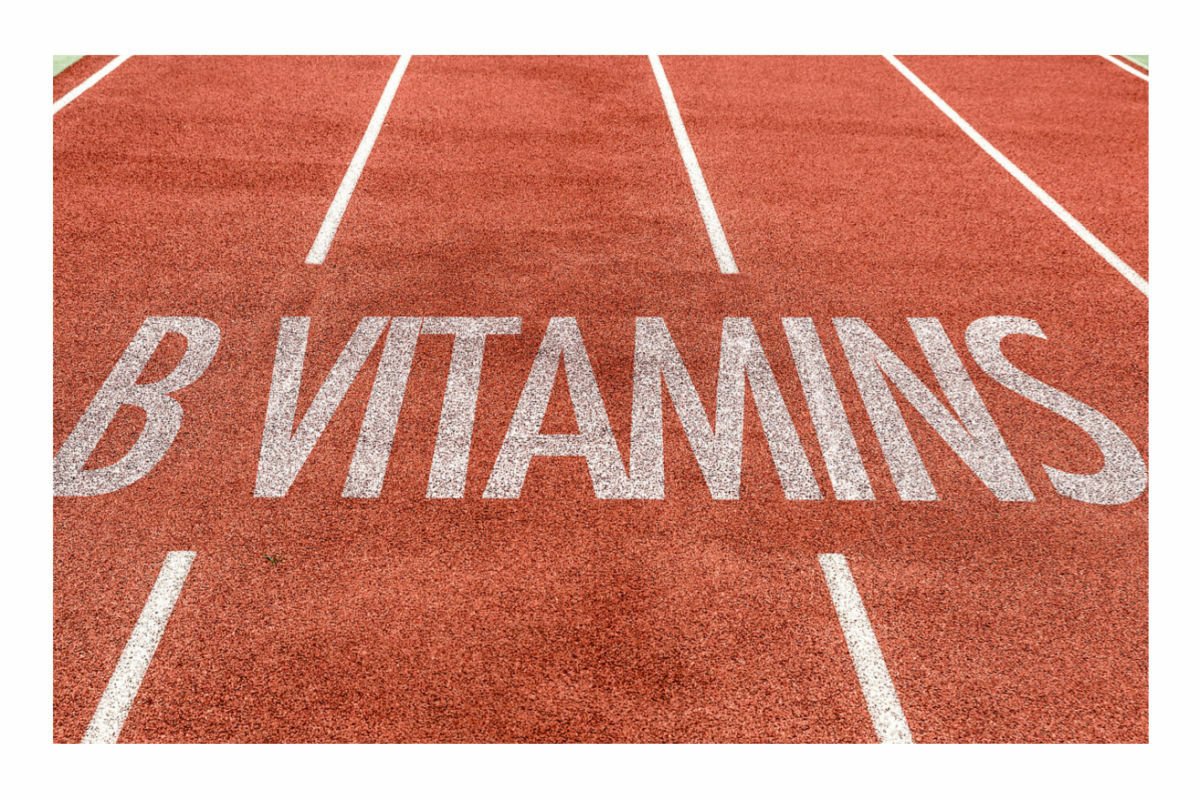
Importance of Maintaining an Optimal Ratio of Sodium, Potassium, Magnesium, and Calcium
Electrolytes are minerals (including magnesium, sodium, potassium, and calcium) that are essential for numerous bodily functions. These mineral molecules have a positive or negative electric charge (also known as an ion) when dissolved in bodily fluids such as blood, urine, and sweat, and conduct electricity as part of their role in cellular signaling.
As this article will explain in detail, maintaining an optimal ratio of electrolytes in the body is absolutely crucial to overall health. We’ll also explain how to maintain an optimal electrolyte balance by consuming electrolyte-rich foods and drinks as well as through electrolyte supplementation.
Why Is It Important to Maintain Electrolyte Balance?
Maintaining the right balance of electrolytes is required for overall health since electrolytes are involved in the following bodily functions, among others:
- Maintaining the correct pH in the body (i.e., not too acidic, or too basic)
- Balancing the body’s fluid levels
- Moving nutrients and waste products in and out of cells
- Functions of muscles and nerves (e.g., movement, sensation, signaling, etc.)
- Stabilizing blood pressure
- Steadying heart rate/rhythm
- Mineralization of bones and teeth
If your levels of any electrolyte are too high or too low, this may disrupt many of the processes listed above, as well as contribute to other potentially serious short- and long-term health effects.
Sodium (Na+)
Role of Sodium in the Body
Sodium controls the amount of fluid that you have in your body and is thought to be essential to the function of your nerves and muscles.
Recommended Sodium Intake
Unfortunately, since many foods are high in salt content, many Americans’ daily sodium intake may be too high, which can lead to health problems such as high blood pressure. Americans’ average sodium intake is about 3,400 mg per day, while the recommended daily intake of sodium for adults is commonly less than 2,300 mg (the equivalent of roughly one teaspoon of table salt).
- Nausea
- Vomiting
- Headache
- Confusion
- Fatigue and drowsiness
- Restlessness
- Irritability
- Muscle weakness/spasms/cramps
- Seizures or coma (in the most severe cases)
High Sodium Symptoms
If you have high levels of sodium in your blood (a condition known as hypernatremia), you may experience the following symptoms:
- Severe thirst
- Irritability
- Restlessness
- Muscle weakness
- Fatigue
- Seizures
- Loss of consciousness
Potassium (K+)
Role of Potassium in the Body
Potassium is involved in cellular function along with sodium. One mechanism is that each time sodium ions enter a cell, potassium ions leave. However, the movement of these ions can vary and does not universally move in opposite directions. Potassium is thought to be especially important for heart function, so if your levels of potassium are too low or too high, it’s possible to develop dangerous cardiovascular problems.
Recommended Potassium Intake
There is no official Recommended Dietary Allowance (RDA) for potassium, but the NIH recommends an adequate intake (AI) of 2,600 mg/day for females 19 years and older, and 3,400mg/day for males 19 years and older.
Low Potassium Symptoms
Low potassium levels (hypokalemia) may manifest in the following symptoms:
- Constipation
- Heart palpitations
- Fatigue
- Muscle spasms/weakness
- Tingling sensations or numbness
- Abnormal heart rhythm, which may cause you to feel lightheaded
High Potassium Symptoms
Mildly elevated potassium levels may have no symptoms at all, but symptoms of very high potassium (or hyperkalemia) may include:
- Heart palpitations
- Muscle weakness
- Numbness
- Nausea
- Vomiting
- Chest pain
- Diarrhea
- Abdominal pain
- Dangerous cardiac arrhythmias
Magnesium (Mg2+)
Role of Magnesium in the Body
Magnesium is involved in the function of the heart, muscles, and nerves. It is also thought to be essential for regulating blood pressure and blood sugar levels, for building bone density, and for immune system function.
Recommended Magnesium Intake
The RDA for magnesium varies with age and sex. Here are the RDAs for magnesium in adults:
- Men, age 19–30: 400 mg
- Women, age 19–30: 310 mg
- Men, age 31–50: 420 mg
- Women, age 31–50: 320 mg
- Men, age 51+: 420 mg
- Women, age 51+: 320 mg
(Note that the RDAs for pregnant and lactating women differ slightly from those listed above.)
Low Magnesium Symptoms
These are the most common symptoms of low magnesium (hypomagnesemia), which is considerably more common than excessively high magnesium:
- Poor appetite
- Nausea
- Vomiting
- Fatigue
- Muscle cramps
- Numbness/tingling
- Heartbeat irregularities
- Seizures (in severe cases)
High Magnesium Symptoms
High magnesium levels (hypermagnesemia) are uncommon; this condition arises most often in those with kidney failure. Symptoms of high magnesium are often similar to those of low magnesium, with the addition of the following:
- Diarrhea
- Abdominal cramps
- Cardiac arrest (in severe cases)
Calcium (Ca2+)
Role of Calcium in the Body
You’re most likely already aware that calcium is an essential mineral for the health of bones and teeth. However, calcium may also be necessary for blood clotting, muscle contractions, nerve function, and maintaining normal heart rhythm, among other important bodily functions.
Recommended Calcium Intake
The RDAs for calcium in women ages 19 to 50 is typically 1,000 mg; for women aged 51+ it increases to 1,200 mg. Men aged 19 to 70 should aim for 1,000 mg of calcium daily, while men aged 71+ should aim for 1,200 mg per day.
Low Calcium Symptoms
Symptoms of mildly low blood levels of calcium (hypocalcemia) may include the following:
- Muscle cramps
- Dry skin
- Brittle nails
- Abnormally coarse hair (compared to your normal hair texture)
In more serious cases, hypocalcemia symptoms may progress to affect the nervous system and/or the brain, causing:
- Confusion
- Poor memory
- Irritability
- Restlessness
- Depression
- Hallucinations
Finally, symptoms of severe hypocalcemia may include:
- Tingling sensations in the tongue, lips, feet, and/or fingers
- Aching muscles
- Muscle spasms in the throat (laryngospasms) that impede breathing
- Muscle spasms and stiffening
- Seizures
- Cardiac arrhythmia
- Congestive heart failure
High Calcium Symptoms
The first symptoms of elevated blood levels of calcium (hypercalcemia) are typically constipation, vomiting, nausea, abdominal pain, poor appetite, and excessive urination (leading to excessive thirst and dehydration). As hypercalcemia persists, those with this condition may develop kidney stones that are high in calcium and may even experience kidney failure. The most severe cases of hypercalcemia may lead to neurological symptoms such as confusion, emotional disturbance, delirium, hallucinations, and coma, and may also cause muscle weakness, joint pain, abnormal heart rhythms, and eventually, death.
Optimizing Electrolyte Balance
Importance of Balanced Electrolyte Intake
Consuming a balanced combination of electrolytes is crucial for short- and long-term health. Electrolyte imbalances can commonly be very dangerous, and may contribute to high blood pressure, cardiovascular diseases, osteoporosis, and insulin resistance/diabetes, among other serious health conditions.
Dietary Sources of Electrolytes
Which are the best foods for electrolytes? The answer to this question depends on which electrolytes you’re seeking to consume more of. Here are some of the best sources of electrolytes from food, broken down by type of electrolyte:
Best Food Sources of Sodium
- Table salt
- Dill pickles
- Cheeses
- Salted nuts
- Olives
- Cured meats
Best Food Sources of Potassium
- Milk
- Bananas
- Potatoes
- Salmon
- Avocados
- Mushrooms
Best Food Sources of Magnesium
- Pumpkin seeds
- Legumes
- Soy products
- Spinach
- Brown rice
- Almonds
- Whole grains
- Dark chocolate
Best Food Sources of Calcium
- Dairy products
- Tofu made with calcium sulfate
- Canned sardines or salmon (with bones)
- Leafy greens
- Almonds
Hydration and Electrolyte Balance
Ensuring that you are adequately hydrated is thought to be crucial for maintaining your body’s electrolyte concentration. More specifically, you should ensure that the amount of fluids and salt you consume is roughly equal to the amount of fluids and salt that you lose (through sweating, breathing, and urination, etc.). If you don’t drink enough water, you may become dehydrated; less commonly, if you drink too much water, you may become overhydrated. The most common causes of electrolyte imbalance include taking certain types of medications (such as diuretics), sweating heavily, vomiting or diarrhea, as well as problems with the heart, kidneys, or liver.
Monitoring Electrolyte Levels
Blood testing is the most accurate way to monitor your electrolyte levels. A metabolic panel is a blood test that includes measurement of sodium, potassium, calcium, chloride, and bicarbonate in the bloodstream (ask your doctor to add on magnesium as it is a separate lab). If you’re at all concerned about your electrolyte levels (or experience some of the symptoms mentioned above), you should consider contacting your doctor to check for any abnormalities.
Best Electrolyte Supplements
Those who are unable to meet their body’s electrolyte needs by consuming foods and beverages high in electrolytes should consider electrolyte supplementation as an additional source. By far, the most optimized and convenient electrolyte supplement is thought to be Capsulyte’s HYDRATION.
HYDRATION was originally formulated by internal medicine physician Dr. Dan Nguyen, MD, MBA to combat dehydration after drinking alcohol, but it’s incredibly useful and effective for anyone who needs to augment their electrolyte intake. HYDRATION contains these key vitamins and minerals:
- Hydra 4G™: A combination of sodium, potassium, magnesium, and calcium in optimal ratios to replace your lost electrolytes.*
- B vitamins: These vitamins regulate energy metabolism, neurological function, and red blood cell formation.*
- Liposomal Pureway C™:This clinically studied, highly bioavailable form of vitamin C supports the immune system and helps the body neutralize illness-causing free radicals.*
- Zinc: This is yet another mineral that is required for a healthy immune response.*
Check out the Capsulyte blog to learn more about how Capsulyte can help your body bounce back from dehydration (and more)!


